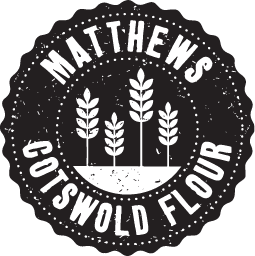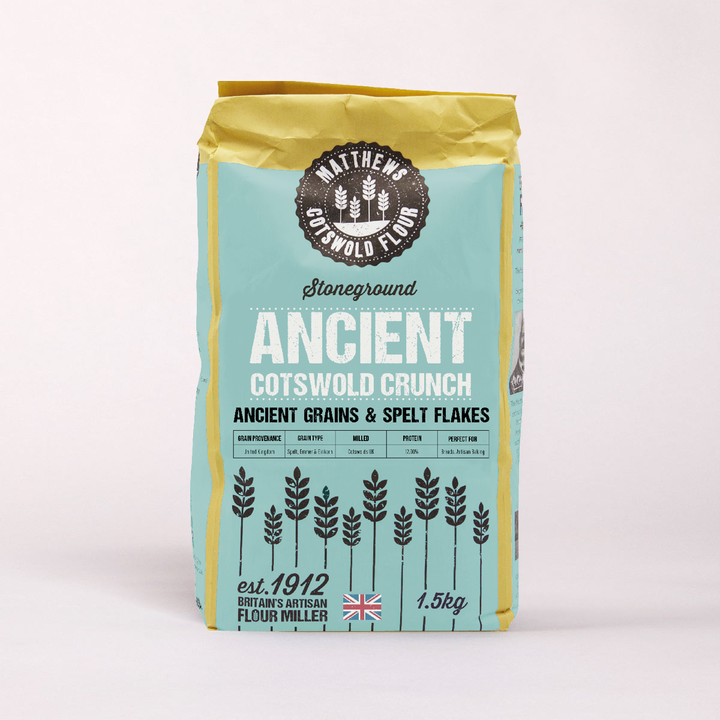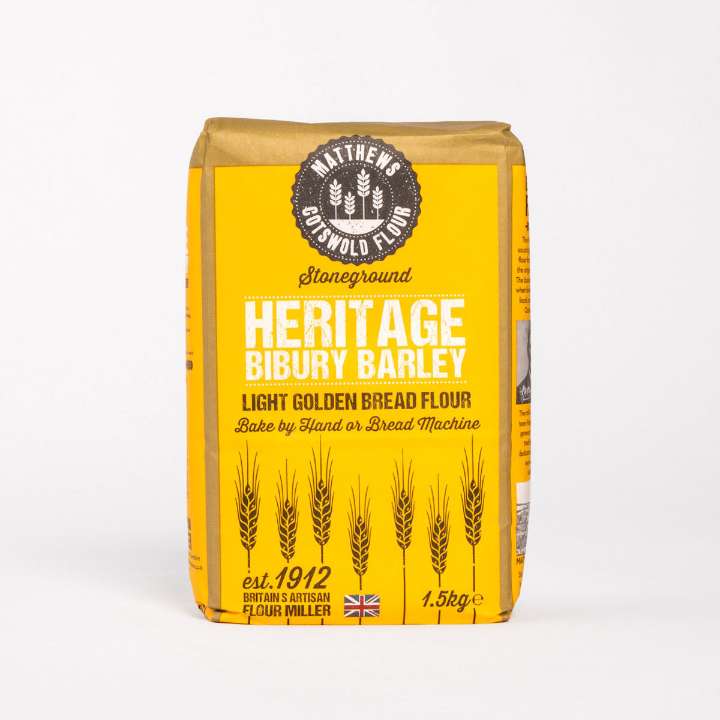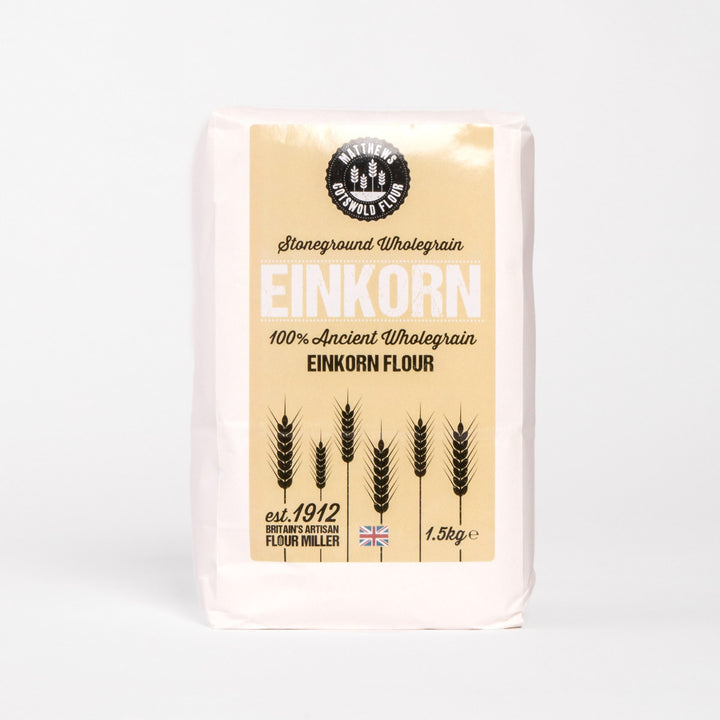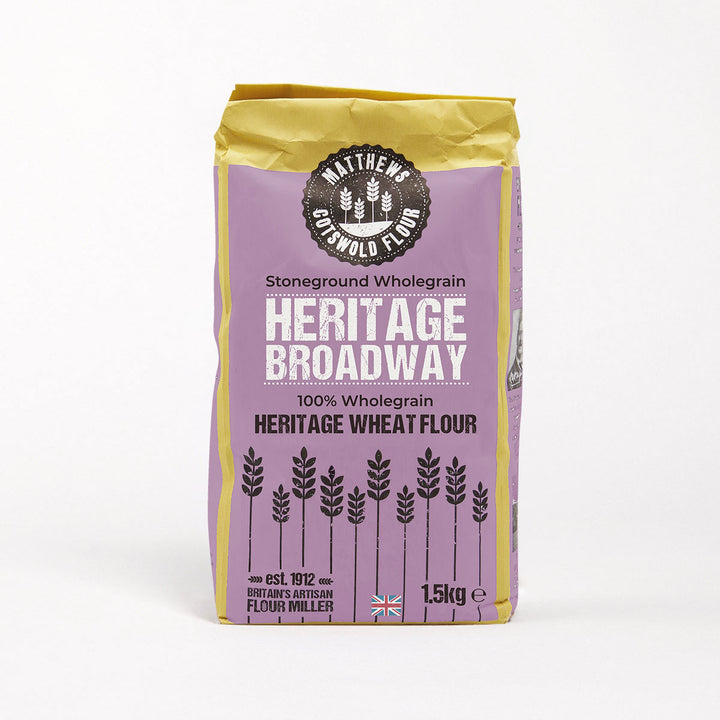Organic flour: 6 top questions about organic flour answered!
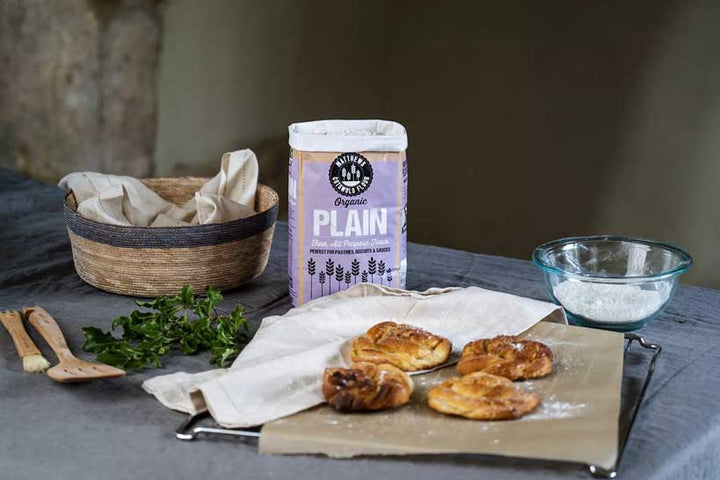

Organic flour is a commonly used flour for baking brilliant goods such as pastries, biscuits or scones, and it is even used to produce sauces. While organic flour is widely used in households and pastry shops, there are many questions revolving around its nutrition profile and the texture of baked goods that use organic flour. To address these doubts, we are covering frequently asked questions about organic flour in this blog post. Happy reading!
1.Is Organic Flour Healthy?
Absolutely! Organic flour is milled from pesticide-free grain and grown in soil that is only fertilized by natural substances. Organic flour is not artificially processed or chemically ripened. Organic grain also develops more robustly, absorbing more nutrients from the soil and thereby making the flour healthier and more nutritious for consumers.
Cotswold Flour’s organic flour is milled in the Cotswolds from carefully selected certified organic wheat. We have supported organic farming for over 30 years. Baking with organic flour means that you have chosen to support nature, protect the environment and promote sustainable farming!
2.What Is the Difference between Organic Flour and “Regular” Flour?When people say “regular” flour, they typically refer to all-purpose or plain flour. While you can find “unbleached” plain flour, many of these types of flours are bleached. When flour is “bleached”, its germ and bran content have been removed. Moreover, bleached flour is artificially aged through the use of bleaching agents such as benzoyl peroxide and chlorine gas, among others, to speed up the flour’s aging process. This process results in a whiter, finer-grain flour with a softer texture but yields a less healthy product. Organic flour on the other hand, has its bran and germ content intact; it is aged naturally and it has no artificial additives, making organic flour significantly healthier than “regular” or “bleached” flour.
3. Does Organic Flour Taste Differently from Flour Types?Some bakers say that organic flour produces better-tasting baked goods, while others cannot tell the difference. You will have to try it out before deciding where you stand on this. As far as flavour and texture go, most bakers agree on the importance of buying unbleached and unbromated flour, such as organic flour, to produce delicious baked goods. Bleach and bromate are used to speed the aging of flour and to leave flour with a bitter aftertaste. Flour aged naturally by being exposed to oxygen over time accentuates the grain’s flavours.
4.Does Organic Flour Bake Differently than Other Flour Types?Aside from the bitter aftertaste mentioned above, there is no significant difference between baking with organic flour and baking with all-purpose flour or other flour types: they would all produce similar results.
5.Is Organic Flour More Expensive than “Regular” Flour?Organic flour is valued at a premium price because of its premium quality compared to other flour types.
6.What Can I Use Organic Flour for?Organic flour is versatile and can be used for a diverse range of baked goods, including pastries and biscuits. You can also use organic flour for baking cakes but it is vital to not over-mix organic flour in the cake batter: doing so will activate the flour gluten and create an undesirable bread-like texture in your cake.
For baking recipes using organic flour, check out our online recipes!
Ready to get your bake on with organic flour? Shop for organic flour at our online flour shop and have it delivered right to your doorstep!
← Older Post Newer Post →
